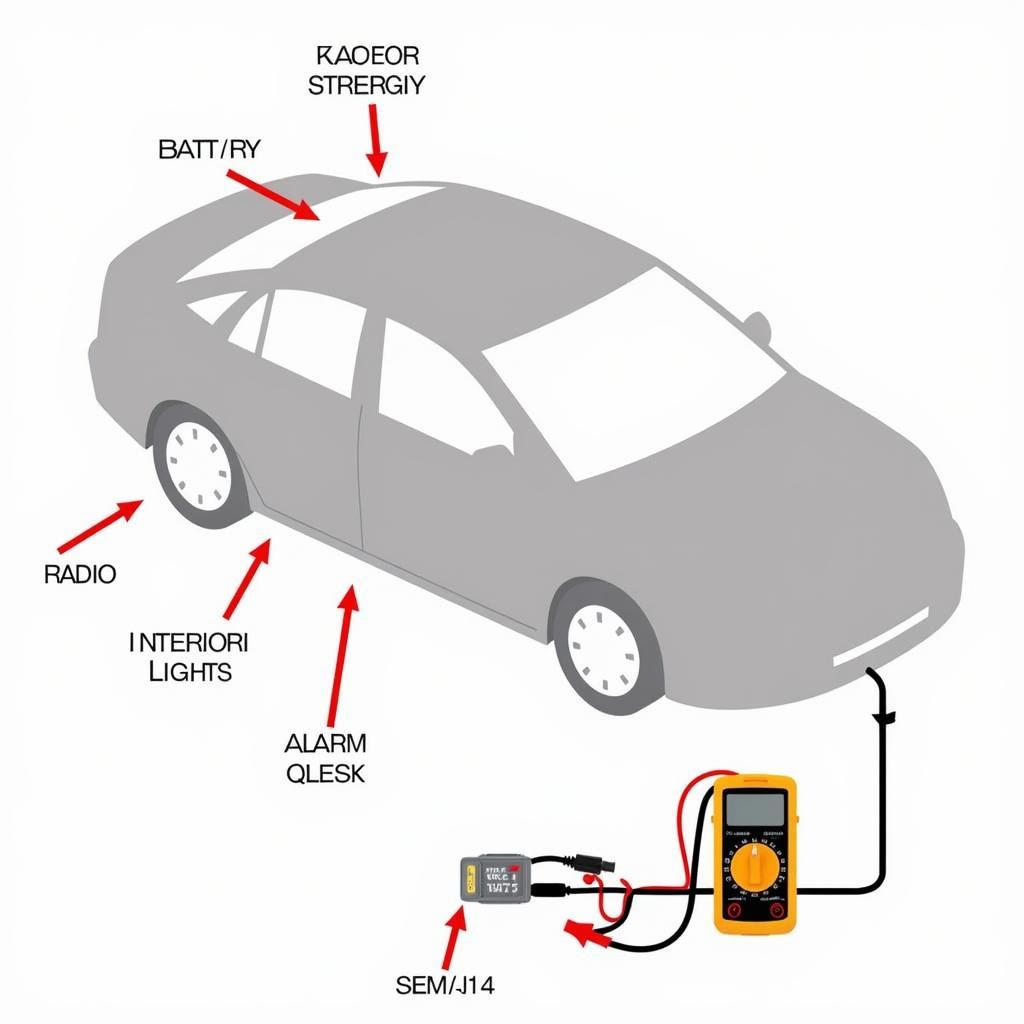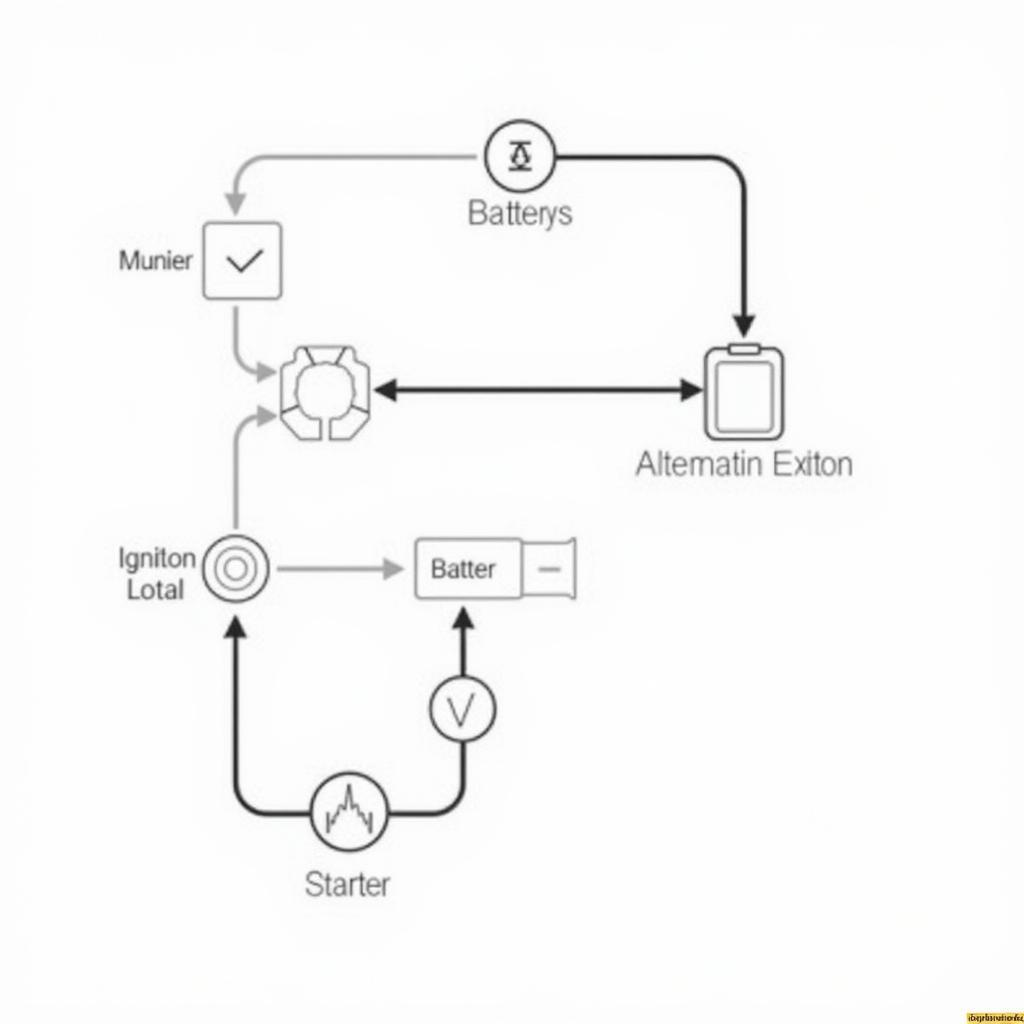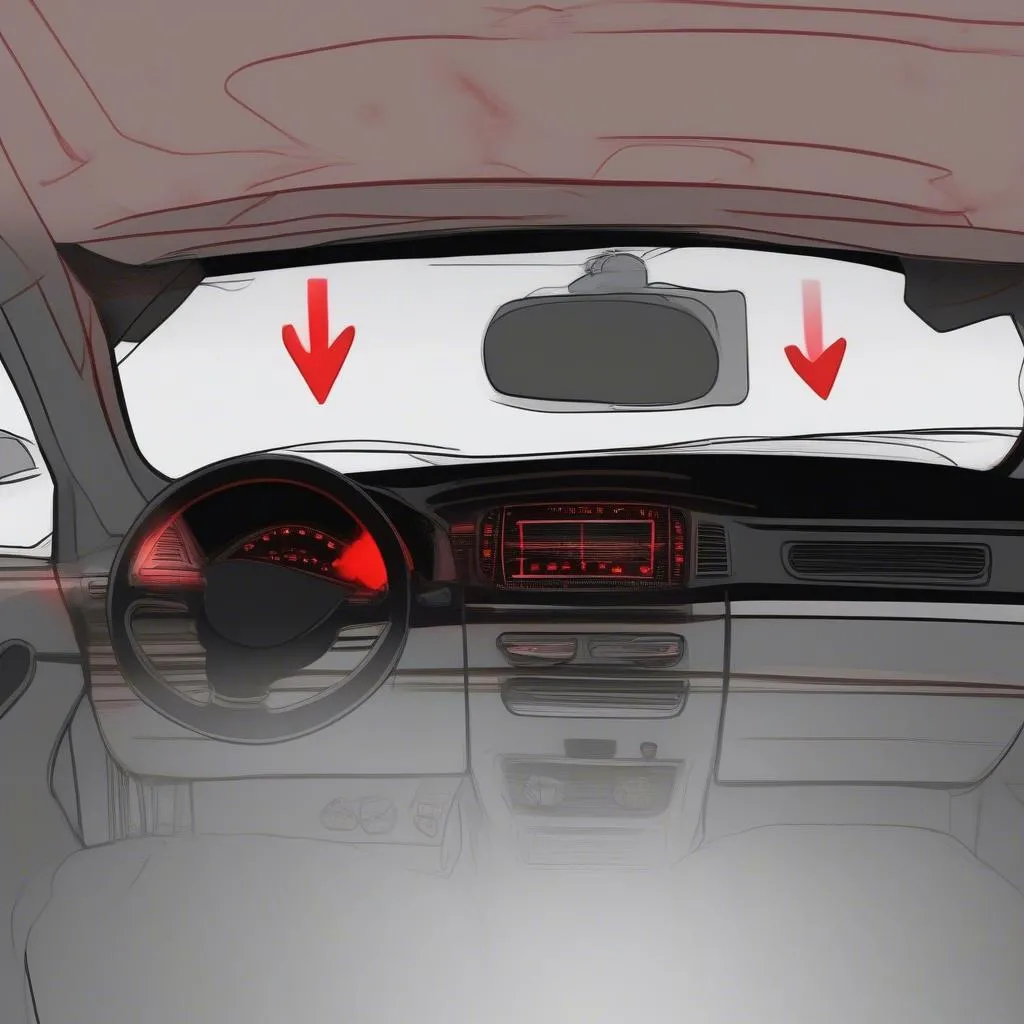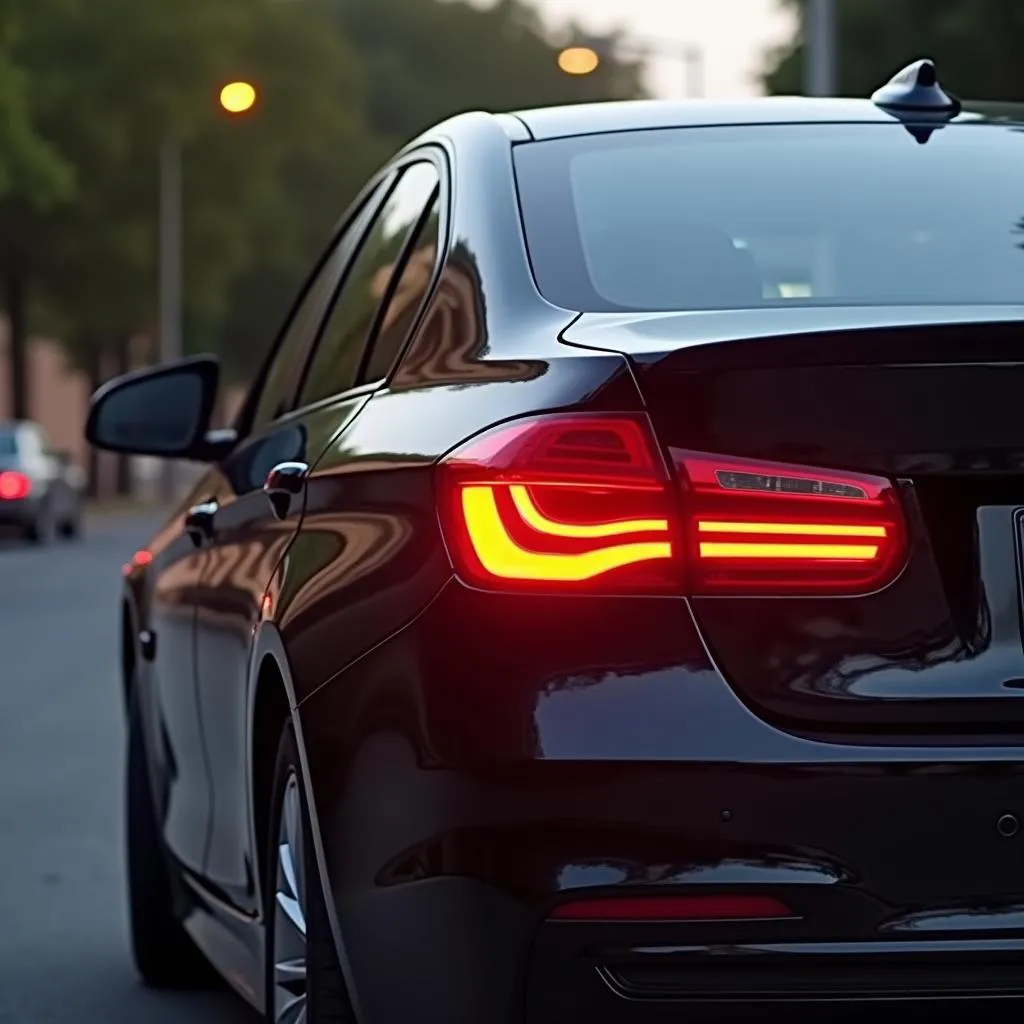Your car won’t start after a battery change? This frustrating scenario is more common than you might think. While a new battery should breathe life back into your vehicle, several factors can prevent it from starting, even with a fresh power source. This guide will walk you through common causes and solutions to get you back on the road.
Common Reasons Your Car Won’t Start After a New Battery
Several issues can prevent your car from starting even after installing a new battery. These include loose connections, corrosion, faulty alternator, parasitic drain, and even a bad starter. Identifying the culprit is key to getting your car running smoothly again.
Loose or Corroded Battery Terminals
One of the most common reasons a car won’t start after a battery change is loose or corroded battery terminals. A poor connection prevents the battery from delivering power to the starter and the rest of the electrical system. Inspect the terminals for any signs of corrosion, a white, powdery substance. If present, clean the terminals with a wire brush and baking soda solution. Ensure the terminals are tightly connected to the battery posts.
Faulty Alternator
A faulty alternator won’t charge the new battery, leaving you stranded. While the new battery might have enough juice for the initial start, a malfunctioning alternator won’t replenish the charge. You can test the alternator with a multimeter to check its voltage output. A reading significantly lower than 14 volts indicates a potential problem.
Parasitic Drain
 Parasitic Drain Depleting Car Battery
Parasitic Drain Depleting Car Battery
Sometimes, a parasitic drain can deplete your new battery even when the car is off. This occurs when an electrical component continues to draw power, slowly draining the battery. Common culprits include interior lights left on, faulty door switches, or malfunctioning radios. Identifying and fixing the source of the drain is crucial to preventing future starting problems.
Bad Starter
A bad starter can prevent your engine from cranking over, even with a new battery. You might hear a clicking sound when you turn the key, indicating the starter is receiving power but failing to engage the engine. A starter test can confirm whether the starter is the root cause.
How to Troubleshoot “Car Won’t Start After Battery Change”
- Check the Battery Connections: Ensure the terminals are clean and tightly fastened to the battery posts.
- Inspect the Alternator: Test the alternator’s voltage output to ensure it’s charging the battery.
- Look for Parasitic Drains: Use a multimeter to measure current draw with the car off to identify potential drains.
- Test the Starter: If you hear a clicking sound when turning the key, have the starter tested.
- Check Fuses and Relays: A blown fuse or faulty relay related to the starting system could be the problem. Consult your car’s owner’s manual to locate the correct fuses and relays.
Expert Advice from John Smith, Automotive Electrical Engineer
“Often, the simplest solution is the right one. Double-check those battery connections before diving into more complex diagnoses.”
“A parasitic drain can be tricky to pinpoint. A systematic approach using a multimeter is your best bet.”
 Car Starting System Diagram
Car Starting System Diagram
Conclusion
A car that won’t start after a battery change can be frustrating, but with a methodical troubleshooting approach, you can often pinpoint the issue and get back on the road. By following the steps outlined in this guide and considering the expert advice, you’ll be well-equipped to diagnose and solve the problem. Remember, if you’re unsure about any of these steps, it’s always best to consult a qualified mechanic. Don’t let a dead battery ruin your day!
FAQ
- Could a bad battery cause starting issues even if it’s new? Yes, it’s possible to purchase a faulty new battery.
- How long should a car battery last? Typically, a car battery lasts between 3 and 5 years.
- What are signs of a failing alternator? Dim headlights, flickering interior lights, and a warning light on the dashboard are common signs.
- How can I prevent parasitic drain? Make sure all lights are off and accessories are unplugged when the car is not in use.
- Can I jump-start a car with a bad alternator? Yes, but the car likely won’t run once the jumper cables are removed.
- What is the cost of replacing a starter? The cost varies depending on the car model, but it typically ranges from $200 to $500.
- Can I drive with a bad alternator? You can drive a short distance, but eventually, the battery will drain completely, and the car will stop.



